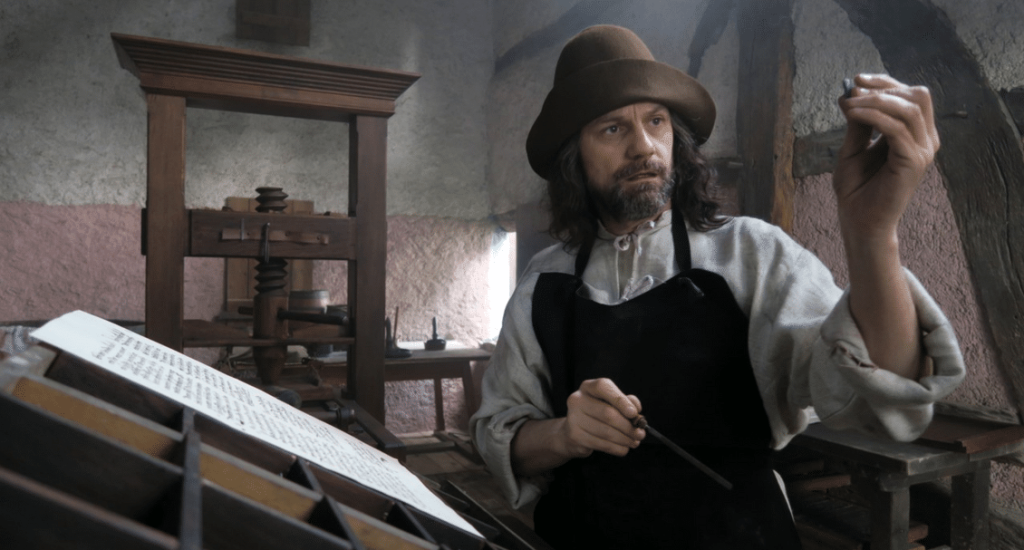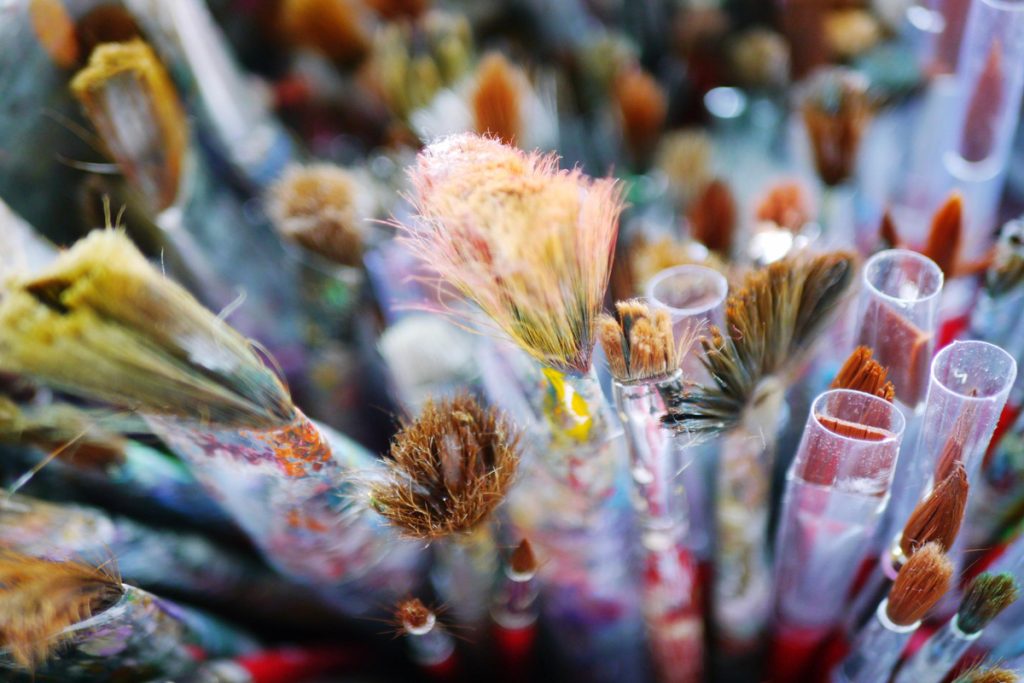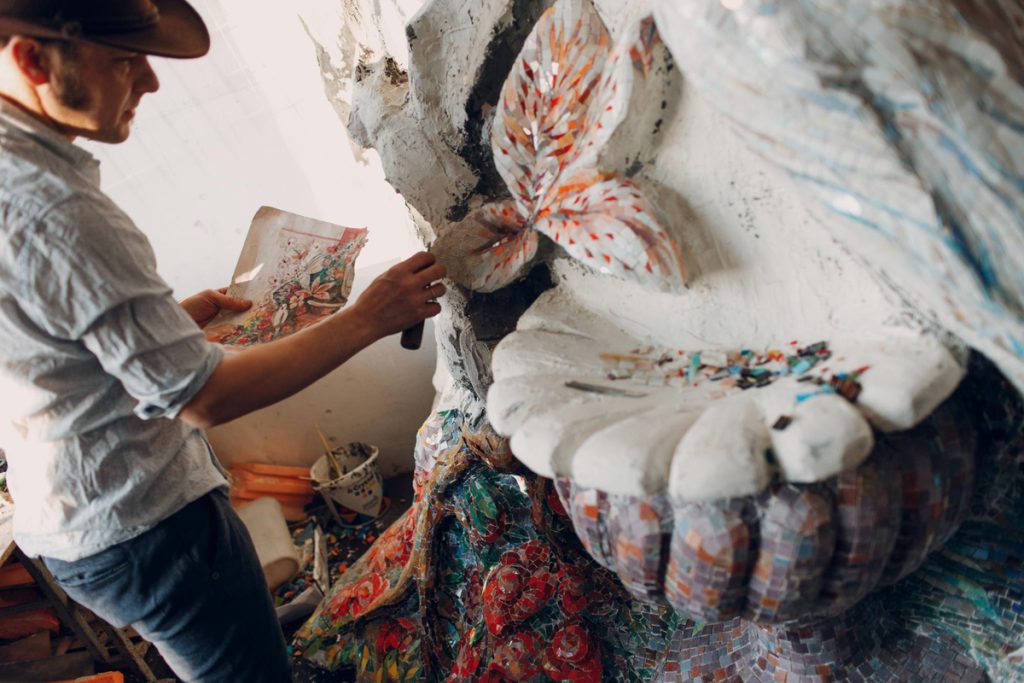Invention docu-fiction, directed by Courtney Stephens and featuring the multifaceted performance of Callie Hernandez, presents an innovative fusion of truth and imagination that captivates audiences. This unique genre weaves together elements of documentary and narrative film, creating a vivid tapestry that reflects on the complexities of the American psyche. As the film unfolds in the picturesque Berkshires, it explores media pollution themes, challenging viewers to discern the fine line between reality and fiction. With a storyline that resonates deeply with contemporary issues, “Invention” embodies the anxieties of today’s society while unraveling personal histories and familial legacies. By merging rich visual storytelling with poignant moments, this docu-fiction invites us to question the nature of truth in an era saturated with information and curated realities.
Alternative storytelling formats such as narrative documentary or hybrid filmmaking have been gaining traction as they push the boundaries of conventional cinema. “Invention” stands as a prime example of this artistic evolution, as it intricately combines fact and fiction to delve into personal and broader societal narratives. By employing a mockumentary style, creators like Courtney Stephens and Callie Hernandez probe the intricacies of the human experience, making room for surrealism in an otherwise grounded critique. This engaging approach allows the audience to experience the pervasive themes of media pollution and American identity in a profound yet entertaining manner. As the film unravels its layers, viewers are left to ponder the implications of these intertwined realities on their own lives.
Exploring the Themes of Deceit and Paranoia in ‘Invention’
In ‘Invention,’ directors Courtney Stephens and Callie Hernandez masterfully weave themes of deceit and paranoia into the narrative, creating a gripping commentary on the fragility of truth in contemporary society. Set against the backdrop of the picturesque Berkshires, the film’s characters find themselves entangled in a web of half-truths and speculative realities. Each person Carrie encounters, from the loyal idolater to the anxious inventor, reflects a facet of the American psyche that grapples with the difficulties of discerning fact from fiction. This theme resonates deeply within the context of today’s media-drenched environment, where misinformation is rampant and trusted narratives often crumble under scrutiny.
As Carrie delves deeper into her father’s legacy, the layers of deception peel away, revealing unsettling truths about both her familial ties and the broader implications of media pollution. The film deftly captures how fear and suspicion can distort relationships and individual perceptions, fostering a pervasive environment where paranoia seems rational. In this way, ‘Invention’ serves as a mirror, reflecting the anxieties of its audience as they navigate a world fraught with deception.
Moreover, the mise-en-scène of ‘Invention’ enhances these themes, with vibrant cinematography showcasing both the beauty and the eeriness of the Berkshires. As Carrie attends to the complexities of her father’s life, the idyllic landscape stands in stark contrast to the moral ambiguities she faces. Each character’s quirkiness, such as the clockmaker’s fixation on conspiracies and Babby’s outlandish beliefs, further illustrates the film’s compelling examination of how paranoia manifests in everyday life. As viewers watch the absurd and the sinister intertwine, Stephens and Hernandez underscore the extent to which the modern American ethos is impacted by deceitful narratives shaped through media.
The Distinctive Docu-Fiction Style of ‘Invention’
‘Invention’ exemplifies the innovative genre of docu-fiction, where the boundaries between real and imagined experiences blur seamlessly. This stylistic choice allows Courtney Stephens and Callie Hernandez to explore complex ideas while maintaining an engaging narrative flow. By intertwining their personal histories with fictional elements, the filmmakers enrich the story, making it not just a narrative about an individual’s journey but a broader commentary on societal issues. This format invites viewers to question their own notions of truth and the ways in which the media landscape can shape perceptions, emphasizing the importance of discerning authenticity in storytelling.
The use of documentary techniques—such as real interviews, improvisational scenes, and the inclusion of actual video clips from Carrie’s father’s promotional pitches—heightens the film’s authenticity. This approach immerses the audience in the experience, encouraging them to witness firsthand the effects of media pollution on personal narratives. By juxtaposing original footage with dramatic elements, ‘Invention’ invites audiences to reflect on the impact of their own media consumption and the narratives they accept as truth, which reverberates throughout American cinema and psyche.
In a reality where misinformation can dominate and overshadow genuine human experiences, ‘Invention’ encourages critical thinking about the stories we choose to believe and those that influence our perceptions of reality. The blurring of documentary and narrative styles acts as a catalyst for discussion, urging viewers to engage with the characters’ complicated relationships and the often hard-to-grasp truths they embody. Throughout the film, this unique docu-fiction style challenges assumptions, making ‘Invention’ a relevant and thought-provoking work that resonates deeply with contemporary audiences.
Carrie Hernandez’s Journey and the Legacy of Dr. J
Carrie Hernandez’s trek into the depths of her father’s past symbolizes a search for understanding within the chaos of conjecture and myth. As she travels through the Berkshires on a quest to reclaim her father’s ashes, viewers accompany her on a journey that emphasizes the tangled fate of family legacies. Throughout ‘Invention,’ the complex tapestry of her father Dr. J’s life—rich with contradiction, brilliance, and deception—serves as both a cautionary tale and a source of intrigue. As Carrie digs deeper into the remnants of his controversial medical career, she uncovers not just the financial and legal mess he left behind but also the profound psychological implications that haunt those who idolized him.
This exploration reveals how the allure of Dr. J’s electromagnetic device, combined with the irrational faith of those around him, speaks to a larger cultural phenomenon within America. Carrie’s realization of her father’s dual nature—a brilliant yet irresponsible figure—forces her to confront the vulnerabilities and failures embedded within familial relationships and societal narratives. The layers of her father’s identity, peppered with themes of conspiracy and media distortion, challenge Carrie to form her understanding of love, betrayal, and self-discovery amidst the absurdities that envelop them.
Ultimately, Dr. J’s legacy becomes symbolic of a broader cultural critique within ‘Invention.’ As Carrie grapples with the weight of his influence, it becomes apparent that her journey reflects the struggles faced by individuals seeking clarity in a world overwhelmed by media noise and market-driven ideologies. This exploration isn’t merely about reconciling with a father lost to the echoes of his choices; it’s an inquiry into the collective American experience shaped by figures like Dr. J, who exist at the intersection of hope and exploitation. As Carrie navigates her past, the film subtly dissects the consequences of deifying flawed figures and the haunting realities of an American psyche heavily influenced by both personal and media narratives.
Media Pollution and Its Impact on the American Psyche
‘Invention’ skillfully articulates the concept of media pollution as a profound factor impacting the modern American psyche, where the lines between reality and fiction are increasingly blurred. Throughout the film, Courtney Stephens and Callie Hernandez illustrate how media’s pervasive nature distorts perception, shaping individuals’ understanding of truth and vulnerability. Through Carrie’s experiences with her father’s dubious medical device, the film raises critical questions about trust, belief, and the potential for manipulation inherent in the media landscape. As Carrie’s encounters with characters who hold unconventional beliefs illustrate, the fallout from media pollution often manifests in extraordinary yet troubling ways that spark both fascination and concern.
The narrative also reflects the historical context of media’s influence, tapping into a deep-rooted strain of American madness. The filmmakers draw parallels between the absurdity woven into their story and the broader spectacles of ‘medicine shows,’ where grandiose claims are made without empirical backing. As viewers witness Carrie’s growing awareness of her father’s charismatic yet manipulative persona, they are also prompted to critique the broader mechanisms of media representation that similarly amplify the allure of sensation over substance. This evocative examination not only underscores the dangers of escapist narratives but also serves as a clarion call for individuals to approach media with a discerning eye.
As ‘Invention’ navigates the rich yet turbulent sea of media pollution, it engages with themes that resonate with contemporary audiences. The film reveals how the overwhelming flood of information can dilute critical thinking and foster a culture increasingly reliant on sensationalism—buying into narratives that lack substance or ethical grounding. In this environment, where the lines are drawn between factual information and emotionally charged storytelling, the audience is compelled to consider their own habits of consumption. Ultimately, Stephens and Hernandez’s poignant exploration of media pollution serves not only as a critique of society but as a reflective examination of the individual’s place within it, emphasizing the urgent need for discerning engagement in an era of disinformation.
Contrasting Nature and Human Absurdity in the Berkshires
In ‘Invention,’ the stunning backdrop of the Berkshires serves not only as a picturesque setting but as a powerful juxtaposition to the human absurdity portrayed in the film. Courtney Stephens and Callie Hernandez harness the beauty of nature to highlight the contrast between the tranquility of the physical landscape and the frenetic chaos of human behavior and ideologies surrounding Carrie’s journey. Captured through meticulous cinematography, these serene moments of untouched nature serve as a reminder of authenticity in a world riddled with deception and chaos. This profound backdrop amplifies the film’s exploration of duality within the human psyche, illustrating how natural beauty can exist alongside the most extraordinary human follies.
The verdant hills and flowing rivers of the Berkshires evoke a sense of rootedness and permanence, standing in stark contrast to the transitory nature of the turbulent emotions and relationships Carrie navigates. As characters in the film grapple with their unrelenting quests for truth amid layers of absurdity, the enduring presence of nature acts as a counterbalance, inviting reflections on the notions of clarity and authenticity that seem increasingly elusive in modern society. In this way, ‘Invention’ employs its natural landscape not just as a visual representation of serenity but as an emblem of resistance against the madness and chaos that often dominate contemporary life.
Moreover, these natural motifs serve to reinforce the themes of transcendental philosophy that echo throughout ‘Invention.’ In conjunction with Carrie’s delicate unraveling of her father’s legacy amidst a backdrop of moral ambiguity, the serene natural vistas invite reflections on self-discovery and personal truth. The film subtly invokes the teachings of American transcendentalists, emphasizing the notion that genuine freedom and clarity can often be found in the wilderness, allowing for an inner connection to the universal truths of existence. As Carrie traverses this world filled with vibrant eccentricity and the shadow of her father, the beauty of the Berkshires becomes a sanctuary for introspection—a reminder of nature’s capacity to ground individuals even in the midst of their most chaotic experiences.
Embodying the Artistic Creation in ‘Invention’
‘Invention’ is not just a cinematic exploration but also a profound artistic statement on the nature of creation itself. Both Courtney Stephens and Callie Hernandez experiment with the conventions of filmmaking, crafting a narrative that blurs the boundaries of reality and fiction, inviting audiences to contemplate the artistry behind storytelling. Through their deliberate choices—such as the use of improvised scenes, real-life artifacts, and candid moments in the storytelling process—the filmmakers emphasize the fluidity of creative expression, heightening the viewer’s engagement with the themes embedded in the narrative. This meta-narrative approach allows for an exploration of the ways in which personal experiences and histories can be transformed into art, illuminating the intersection of truth and creativity.
The film’s creative structure mirrors the chaotic journey of self-discovery that Carrie undertakes, showcasing how artistic expression can serve as both a means of catharsis and investigation into one’s legacy. This exploration further opens a dialogue about the role of the artist in society, drawing parallels between the manipulation of narratives in the film and the various ways in which societal stories are crafted and disseminated. In this light, ‘Invention’ becomes a celebration of the creative process itself—a reminder of the joys and difficulties of artistic endeavors within a world ripe with contradictions and complexity.
By embracing the spontaneity of artistic creation, ‘Invention’ reveals the essential connection between storytelling and personal truth, highlighting the inherent value in crafting narratives that resonate with both authenticity and absurdity. As viewers witness the interplay between scripted storytelling and documentary elements, they are encouraged to reflect on the significance of their own narrative constructions and the roles they play in shaping collective perceptions. Ultimately, through this exploration of artistic creation, ‘Invention’ shines a light on the transformative power of honesty in creativity, urging both filmmakers and spectators alike to embrace the complexities that arise when truth intertwines with imagination.
Frequently Asked Questions
What themes are explored in the Invention docu-fiction by Courtney Stephens and Callie Hernandez?
The Invention docu-fiction delves into themes of deceit, paranoia, and media pollution. It examines the complexities of the American psyche, especially the struggle to differentiate between fact and fiction, against a backdrop of a picturesque Berkshires landscape.
How does Invention blend fiction and nonfiction elements?
Invention blends fiction and nonfiction by employing a narrative that uses real-life experiences of Callie Hernandez, intertwined with fictional elements that explore her character Carrie’s journey. This docu-fiction format allows for a unique exploration of personal and societal themes.
Who are the main characters in Invention and what roles do they play?
The main characters in Invention include Carrie Fernandez, portrayed by Callie Hernandez, who is on a quest to claim her late father’s ashes while uncovering his complex legacy. Other notable characters include the executor of her father’s estate, played by James N. Kienitz Wilkins, and a range of quirky individuals connected to her father, reflecting the film’s themes of eccentricity and deception.
What role does the setting in the Berkshires play in Invention?
The Berkshires setting in Invention serves as both a beautiful backdrop and a character in itself, representing the complexities of wealth, reinvention, and the peculiar social dynamics surrounding Carrie’s father. The natural beauty contrasts sharply with the prevailing themes of media pollution and societal strangeness.
How is media pollution depicted in Invention?
Media pollution in Invention is represented through clips of Carrie’s father promoting dubious medical devices and sensational media snippets. This illustrates the impact of commercialism and misinformation on the American psyche, echoing the film’s overall commentary on contemporary society.
What is the significance of Callie Hernandez’s character in the film Invention?
Callie Hernandez’s character, Carrie Fernandez, serves as a conduit for exploring personal grief and the complexities of familial legacy. Her journey through her father’s past highlights themes of deception, societal expectation, and the blurred lines between reality and perception in the context of American culture.
How does Invention address the concept of the American psyche?
Invention addresses the American psyche by unraveling the widespread difficulty in discerning truth from fiction, emphasizing how media and personal narratives contribute to confusion and paranoia within contemporary society.
What makes Invention a timely commentary on contemporary issues?
Invention is a timely commentary as it responds to the modern inundation of misleading narratives and commercialization, particularly in the context of health and wellness. It reflects the challenges individuals face in navigating a world filled with alternative facts and sensationalism.
What cinematographic techniques are used in Invention?
Invention employs 16mm film to create a handcrafted aesthetic that enhances the film’s exploration of nature and reality. The cinematography by Rafael Palacio Illingworth captures the vibrant landscapes of the Berkshires, juxtaposing the film’s oddities with the serenity of the natural world.
What message does Invention convey about society’s relationship with technology and media?
Invention conveys a critical message about society’s relationship with technology and media, suggesting that the saturation of misinformation can lead to paranoia and confusion. It underscores the need for discernment in an age where media pollution distorts the truth.
| Key Aspect | Details |
|---|---|
| Film Title | Invention |
| Directors | Courtney Stephens, Callie Hernandez |
| Main Themes | Deceit, Paranoia, American Psyche |
| Plot Overview | Carrie Fernandez investigates her father’s legacy, involving debts, legal issues, and a questionable medical device. |
| Setting | Great Barrington, Massachusetts |
| Filmmaking Style | Blurs the line between fiction and nonfiction, incorporates improvised scenes. |
| Social Commentary | Examines the challenges of distinguishing fact from fiction in modern America. |
| Cinematography | Shot on 16mm film, highlighting natural wonders and a handcrafted aesthetic. |
Summary
Invention docu-fiction uniquely intertwines reality with narrative, unraveling the complexities of deceit and paranoia within an idyllic American landscape. The film not only engages viewers with its thought-provoking themes but also raises crucial questions about the nature of truth in our modern society. This multifaceted piece serves as a vivid reminder of the perils of media pollution and the urgent need for clarity amidst chaos.



